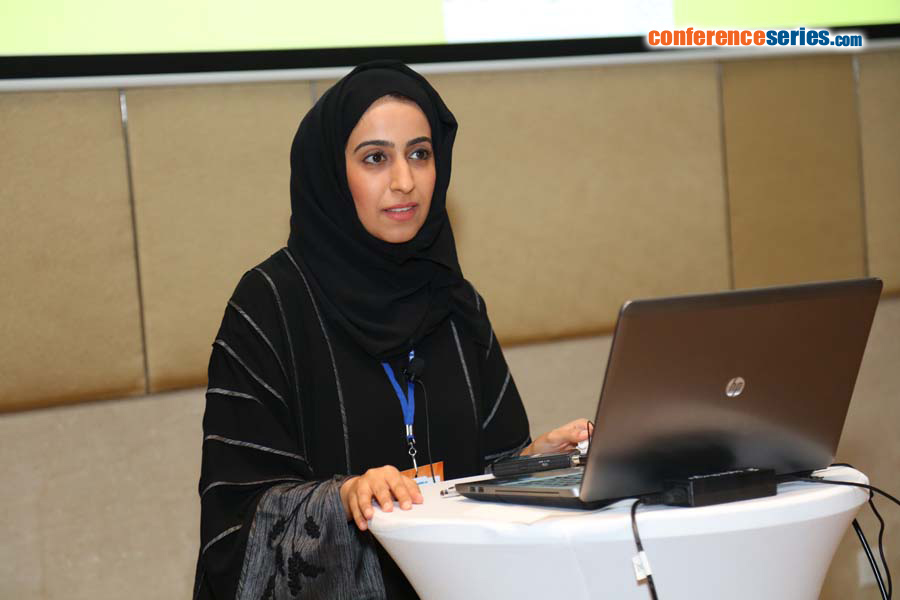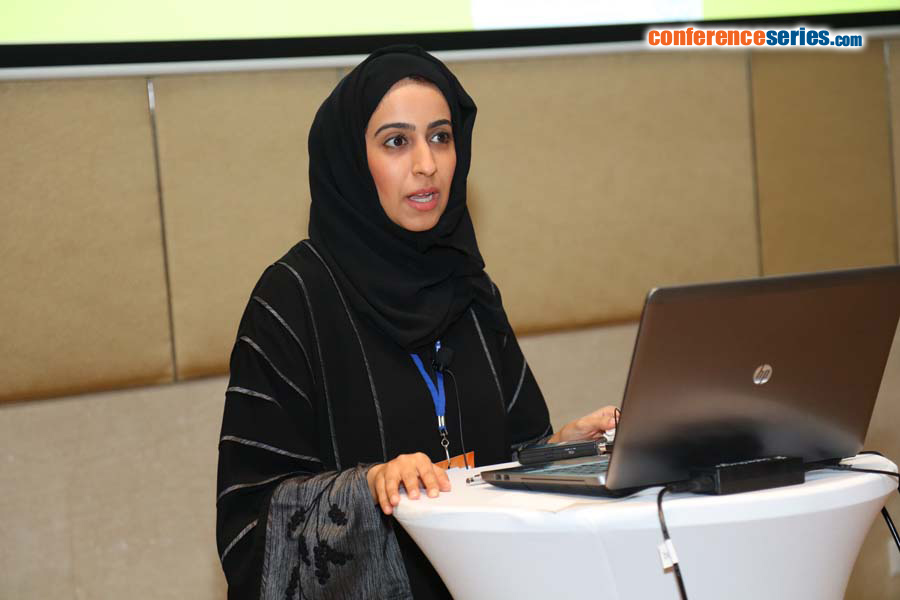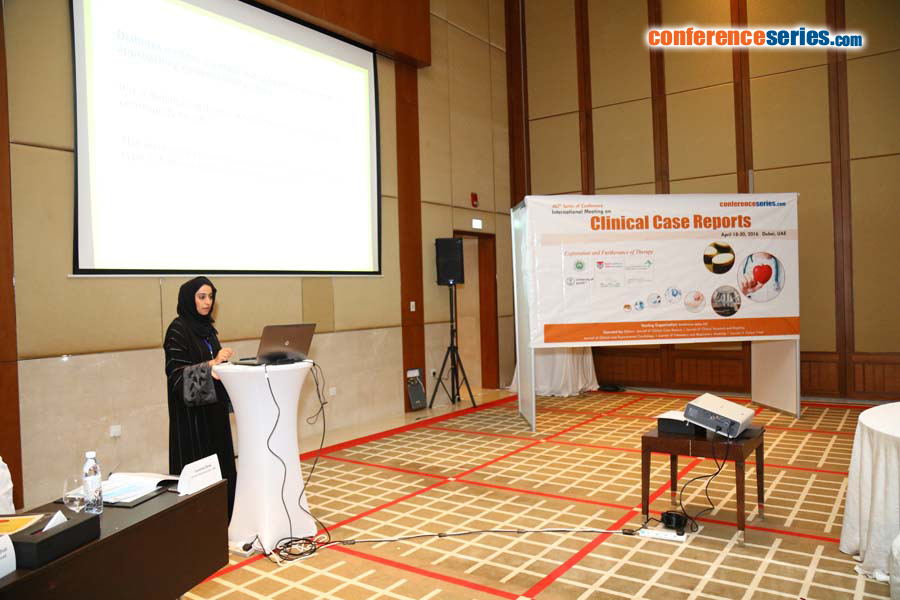
Anood Jamal Hussain Mohd Al Shaali
Dubai Health Authority, UAE
Title: Risk assessment for delaying type 2 diabetes mellitus and its determinants among adults attending Dubai primary health care centers, 2012
Biography
Biography: Anood Jamal Hussain Mohd Al Shaali
Abstract
Type 2 diabetes mellitus (T2DM) is one of the most prevalent and costly chronic health conditions in the United Arab Emirates (UAE). Early identification of people who are at risk is a pivotal step to initiate preventative measures. The objective of this research was to assess adults’ level of risk of developing type 2 diabetes mellitus and to identify the determinants of risk for developing the disease. A cross-sectional study was carried out among adults attending the primary health care (PHC) centers in Dubai, UAE. A total of 515 adults were selected by systematic random sampling and assessed using an interview questionnaire. More than 40% of the participants demonstrated a risk of developing T2DM. It was found that 21.6%, 19.4% and 1.9% of participants were at moderate, high and very high risk, respectively, of developing T2DM within 10 years. The results of stepwise logistic regression revealed 10 predictors associated with the risk of developing T2DM: age ≥ 45 years, positive family history of diabetes mellitus, poor knowledge of T2DM, low perception level about diabetes, eating refined grains on daily basis, eating fried food on a daily basis, history of high blood glucose, < 30 minutes of physical activity per day, BMI ≥ 25 kg/m2 and high waist circumference. The overall risk of developing T2DM amongst adults attending the PHC centers was alarming. The participants at risk were characterized by obesity (in particular central obesity), physical inactivity and a positive family history of diabetes. We recommend the use of a diabetes risk assessment questionnaire as initial step for T2DM screening in PHC centers. In addition, we recommend that a structured lifestyle modification program should be delivered to those at moderate and high risk of developing T2DM, to improve their health and to delay or prevent T2DM
Speaker Presentations
Speaker PPTs Click Here




